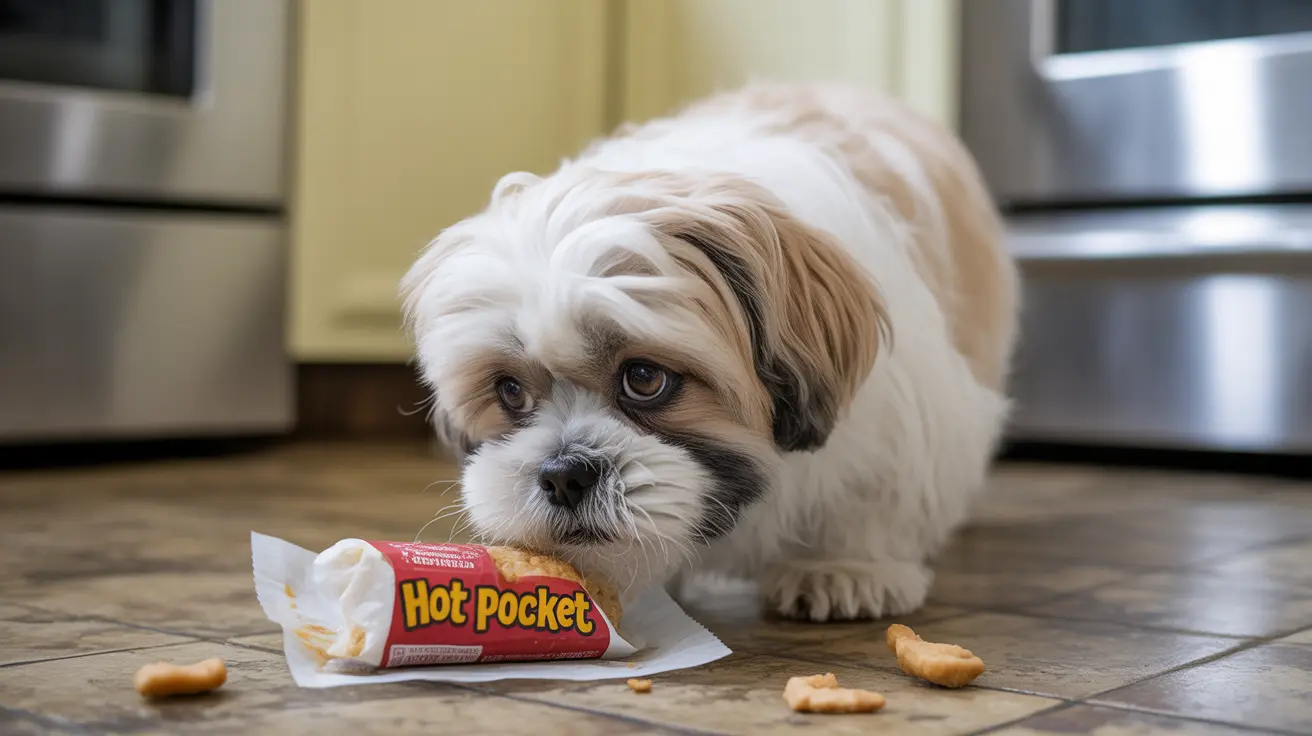Why Hot Pockets Are Dangerous for Dogs
Hot Pockets contain several ingredients that can be harmful or even toxic to dogs. The combination of processed meats, cheese, seasonings, and preservatives creates a potentially dangerous mixture for your canine companion.
Harmful Ingredients and Their Effects
The most concerning ingredients in Hot Pockets include:
- Onion and garlic powder (toxic to dogs)
- High sodium content (risk of salt poisoning)
- Processed meats and cheese (digestive issues)
- Artificial preservatives and additives
- Excessive fats (risk of pancreatitis)
Immediate Health Risks
When dogs consume Hot Pockets, they may experience several immediate health issues:
- Gastrointestinal upset
- Vomiting and diarrhea
- Excessive thirst
- Lethargy
- Abdominal pain
Long-term Health Concerns
Regular consumption or large quantities of Hot Pockets can lead to serious health problems in dogs:
- Obesity from high caloric content
- Heart disease due to excessive sodium
- Pancreatitis from high fat content
- Nutritional deficiencies
- Chronic digestive issues
What to Do If Your Dog Eats a Hot Pocket
If your dog manages to eat a Hot Pocket, follow these steps:
- Determine how much was consumed
- Check the ingredients list for toxic components
- Monitor your dog for adverse reactions
- Contact your veterinarian if symptoms develop
- Keep your dog hydrated
When to Seek Emergency Care
Seek immediate veterinary attention if your dog shows any of these symptoms:
- Severe vomiting or diarrhea
- Difficulty breathing
- Unusual lethargy
- Signs of abdominal pain
- Excessive drooling or panting
Safe Alternatives to Hot Pockets for Dogs
Instead of Hot Pockets, consider these healthy treat options for your dog:
- Fresh lean meats (unseasoned)
- Dog-specific training treats
- Fresh vegetables like carrots
- Plain, cooked sweet potato
- Commercial dog treats formulated for canine nutrition
Frequently Asked Questions
Can dogs safely eat Hot Pockets or are they harmful?
No, dogs cannot safely eat Hot Pockets. They contain numerous ingredients that are harmful to dogs, including toxic seasonings, excessive sodium, and processed fats that can cause various health issues.
What health risks can occur if my dog eats a Hot Pocket?
Health risks include gastrointestinal upset, salt poisoning, pancreatitis, and potential toxicity from ingredients like onion and garlic powder. Long-term risks include obesity and heart problems.
Are ingredients like onion and garlic in Hot Pockets toxic to dogs?
Yes, onion and garlic (even in powder form) are toxic to dogs and can cause hemolytic anemia, a condition where red blood cells are destroyed faster than they can be made.
What should I do if my dog accidentally eats a Hot Pocket?
Monitor your dog for symptoms of distress, keep them hydrated, and contact your veterinarian if they show signs of illness. If they consumed a large amount or show immediate symptoms, seek emergency veterinary care.
What healthier treat alternatives can I give my dog instead of Hot Pockets?
Offer dog-specific treats, plain cooked meats, fresh vegetables, or commercial dog treats designed for canine nutrition. Always choose treats that are formulated specifically for dogs and approved by veterinarians.
Remember, while Hot Pockets might be a convenient snack for humans, they have no place in your dog's diet. Keep these processed foods out of reach and stick to pet-appropriate treats to ensure your furry friend's health and safety.






